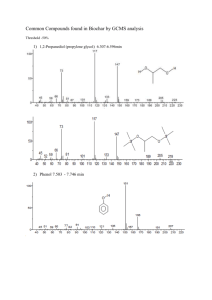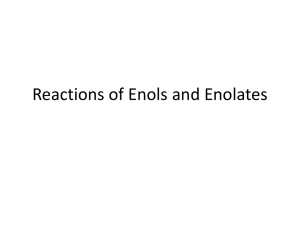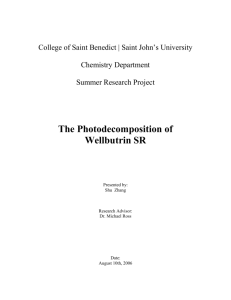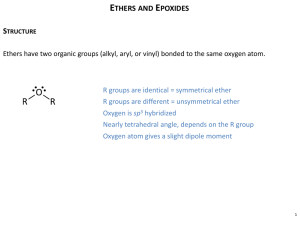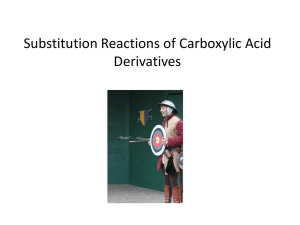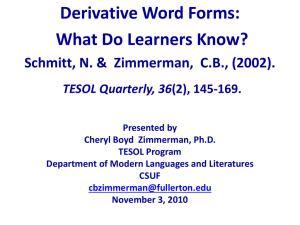A Synthetic Methodology Towards the
advertisement
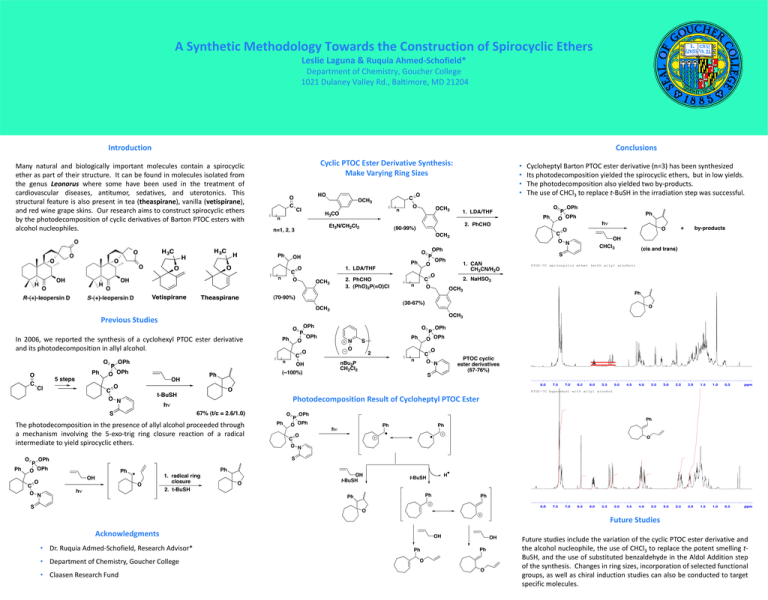
A Synthetic Methodology Towards the Construction of Spirocyclic Ethers Leslie Laguna & Ruquia Ahmed-Schofield* Department of Chemistry, Goucher College 1021 Dulaney Valley Rd., Baltimore, MD 21204 Introduction Many natural and biologically important molecules contain a spirocyclic ether as part of their structure. It can be found in molecules isolated from the genus Leonorus where some have been used in the treatment of cardiovascular diseases, antitumor, sedatives, and uterotonics. This structural feature is also present in tea (theaspirane), vanilla (vetispirane), and red wine grape skins. Our research aims to construct spirocyclic ethers by the photodecomposition of cyclic derivatives of Barton PTOC esters with alcohol nucleophiles. Conclusions Cyclic PTOC Ester Derivative Synthesis: Make Varying Ring Sizes • • • • Cycloheptyl Barton PTOC ester derivative (n=3) has been synthesized Its photodecomposition yielded the spirocyclic ethers, but in low yields. The photodecomposition also yielded two by-products. The use of CHCl3 to replace t-BuSH in the irradiation step was successful. Previous Studies In 2006, we reported the synthesis of a cyclohexyl PTOC ester derivative and its photodecomposition in allyl alcohol. Photodecomposition Result of Cycloheptyl PTOC Ester The photodecomposition in the presence of allyl alcohol proceeded through a mechanism involving the 5-exo-trig ring closure reaction of a radical intermediate to yield spirocyclic ethers. Future Studies Acknowledgments • Dr. Ruquia Admed-Schofield, Research Advisor* • Department of Chemistry, Goucher College • Claasen Research Fund Future studies include the variation of the cyclic PTOC ester derivative and the alcohol nucleophile, the use of CHCl3 to replace the potent smelling tBuSH, and the use of substituted benzaldehyde in the Aldol Addition step of the synthesis. Changes in ring sizes, incorporation of selected functional groups, as well as chiral induction studies can also be conducted to target specific molecules.
